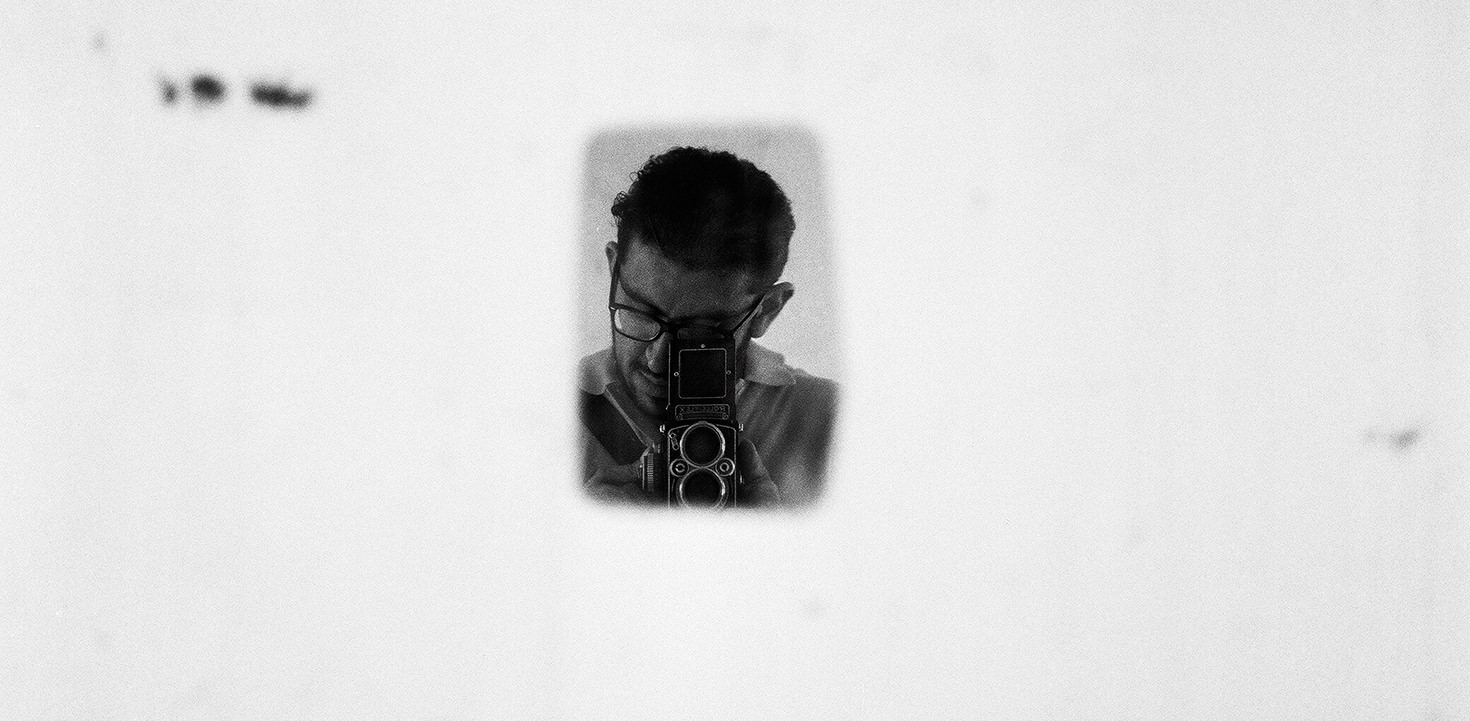Bio

Ammar Al Attar is a photographer and mixed media artist. Born in 1981, he lives in Ajman in the United Arab Emirates.
Completely self-taught, Al Attar’s practice seeks to not only document and translate but also methodically research and examine aspects of Emirati ritual, material culture, and geographic orientation that are increasingly illusive in his rapidly globalizing society.
Al Attar often incorporates retro photographic equipment into his shoots. He hoards everything from slide projectors to large format cameras, dog-eared postcards and orphaned negatives and meticulously catalogues these clues to the past on the shelves of his Sharjah studio. His ongoing research project, Reverse Moments a collaboration with various long time studio photographers, collects stories and artifacts that compose the history of photography in the UAE, and curates these flashes into a critical emerging narrative.
Al Attar’s first solo show Prayer Rooms, brought viewers into Muslim sacred spaces from impermanent ‘porta-mosques’ on roadsides, and simple neighborhood mosques, to sleek shopping mall and office complex prayer rooms in the UAE, Bahrain, and Saudi Arabia. Sibeel Water, which was shown at Dubai’s Cuadro Gallery in 2013, investigated both the industrial and decorative range of public water fountains positioned outside homes and government buildings in the UAE as a form of charitable giving to workers and passerby compelling viewers to consider the theme of resource conservation in the desert alongside Islamic geometric patterns and a hospitality that is slowly dying out.
With Index 1.0, a series commissioned by Maraya Art Centre, Al Attar shot large format portraits of 50 artists, patrons, curators, and writers who paved the way for the established contemporary art hub that the UAE has come to be recognized as over the course of the past decade. The show marked a shift for Al Attar from portraits of places to portraits of people a pattern that continued with Salah, his 2015 solo show at Cuadro Gallery, which immersed viewers in the movements, meta-movements and meaning of prayer in Islam through stark self portraits and the artist’s first performance piece, in which he filmed himself praying in the midst of busy intersections and noted how passerby responded.
Al Attar’s work has been increasingly shown within the UAE and Gulf, and is held in prestigious public and private collections including Sharjah Art Foundation, Barjeel Art Foundation, and Maraya Art Centre, the forthcoming Zayed National Museum, and others. He is represented by Cuadro Gallery in Dubai.